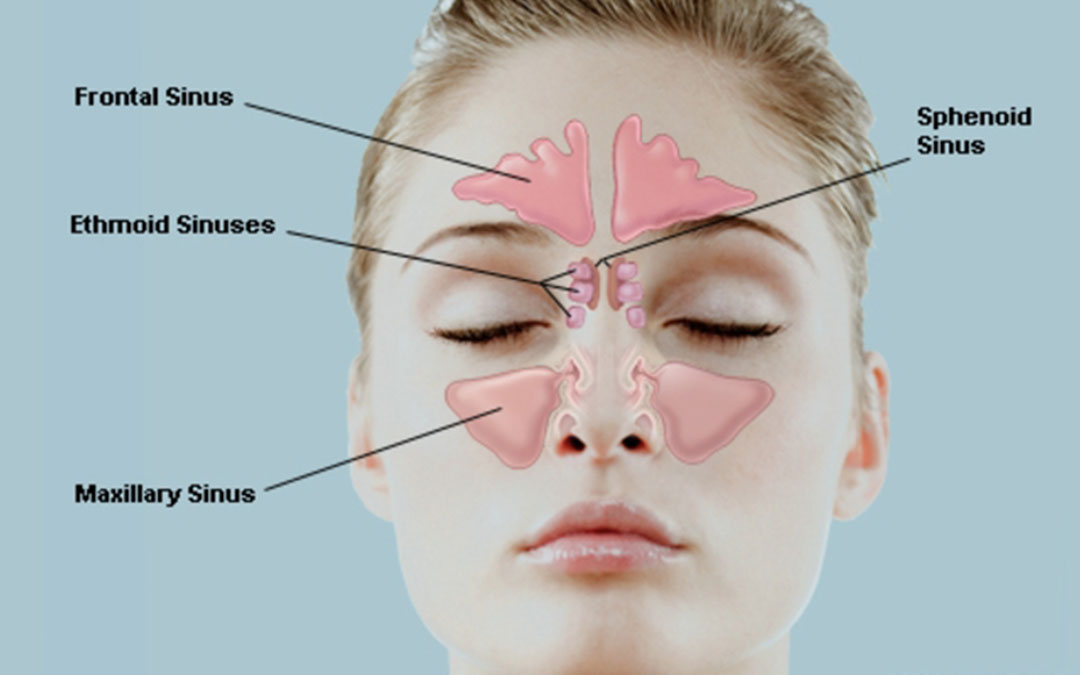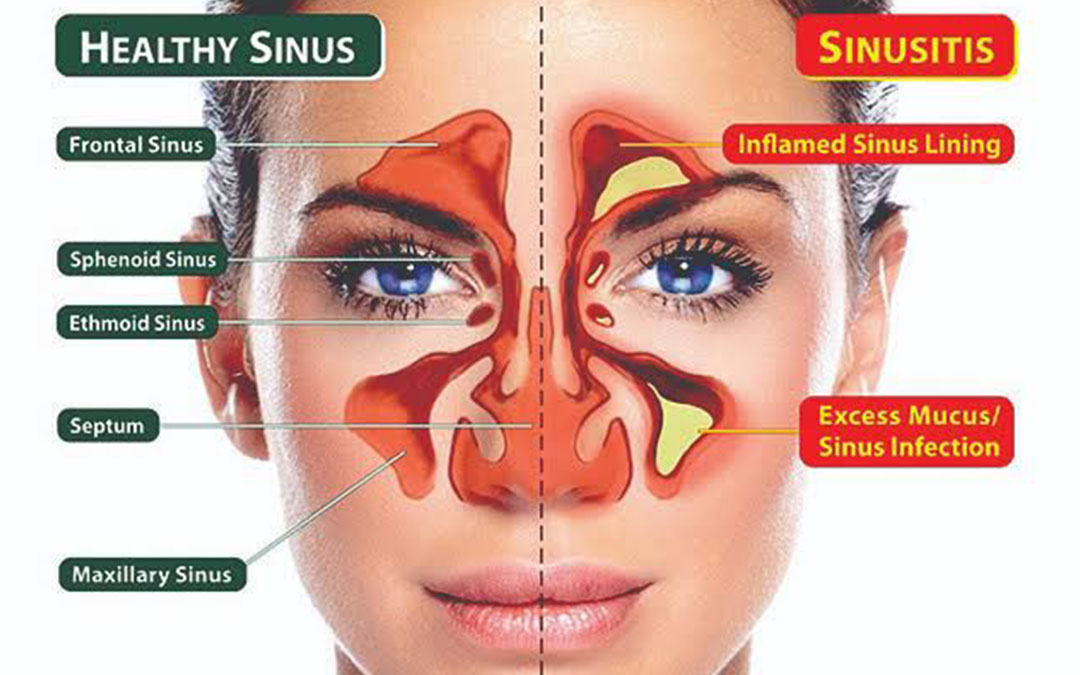The nasal sinuses are hollow air spaces within the bones surrounding the nose. They produce mucus, which drains into the nose.

Rhinitis is an infection of the nose.
Sinusitis is an infection of the sinus cavities.

Sinusitis may develop if the openings between your sinuses and the nose become blocked. This may occur after a cold, infection or an allergic reaction. Having a deviated septum, nasal allergies, nasal polyps and other conditions such as smoking or upper tooth infections may also increase your risk of having sinusitis.

There are also a number of factors that can make the sinuses more prone to infection
Rhinosinusitis is an infection of both the nasal and sinus cavities.
Based on the duration of symptoms Rhinosinusitis can be classified as:
Functional Endoscopic sinus surgery is the name given to operations used for severe or difficult to treat sinus problems. In the past sinus operations were done through incisions (cuts) in the face and mouth. However, sinus surgery with an endoscope, allows the operation to be performed without the need for these cuts.
The appropriate answer to this question depends on an individual’s thorough Clinical Analysis and consultation.
We usually consider surgery in cases of Chronic Rhinosinusitis, when treatment along these lines has failed to improve your situation.
Each operation is individual, depending on the cause of the disease and which sinuses are involved.
For example, the maxillary sinuses (in the cheek), the frontal sinuses and/or the ethmoid sinuses (between the eyes) may be affected, and may need to be opened up to clear the blockage and reestablish normal sinus drainage pathways.
The operation is done through your nose with endocopes using small custom-made instruments, with no cuts or scars on the face.
Detailed information regarding the procedure and post-procedure care will be given after consultation.